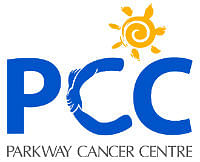
Why is pain management important?
Pain is the most feared symptom in patients suffering from cancer.
With a proper understanding of the cancer pain and its management, cancer patients can focus on their treatment and improve their quality of life.
Do all patients experience cancer pain?
No. It is estimated that 50 per cent of the cancer patients may report pain at the time of diagnosis, increasing to about 75 per cent at advanced stages.
I often educate my patients that out of four cancer patients, one may not experience any pain at all, one may experience mild pain, one may feel moderate pain, and one may have severe pain.
What causes cancer pain?
Cancer pain is mainly caused by cancer invading or compressing various body tissues or organs. This stimulates the lining pain nerve endings resulting in sharp or dull aching pain. This is often termed as the "nociceptive pain".
Sometimes, the cancer pain is due to compression of the nearby nerves (rather than stimulating the nerve ending) what we often termed as "neuropathic pain" or nerve pain.
It is often described as shooting pain, pins and needles sensation, burning sensation, etc.
Distinguishing nociceptive pain and neuropathic pain is important as they respond to different pain medications. Often, the cancer pain may be mixed nociceptive/neuropathic pain and requires a combination of different pain medications to ease the pain.
But we should not assume that all the pain experienced by cancer patients are directly caused by the cancer. It is estimated that 5 to 10 per cent may be due to the cancer treatment (e.g. pain from mouth ulcers caused by certain cancer treatment) and up to 20 per cent of the pain may not be related to the cancer (e.g. osteoarthritis of knee, osteoporosis of the spine).
Who should manage your cancer pain?
The oncologist managing your treatment is the best person to manage your cancer pain, as he would know your condition best and can investigate the cause of new pain if necessary.
He will likely prescribe some pain-relieving medications in one or more of the following groups defined by the World Health Organization's 3-step ladder for cancer pain relief: A. Non-opioids, e.g. paracetamol, NSAIDs B. Weak opioids, e.g. tramadol C. Strong opioids, e.g. morphine, oxycodone, fentanyl D. Nerve pain medicine, e.g. pregabalin
What if your cancer pain is still not well controlled?
Your oncologist may refer you to a specialist in palliative medicine to help co-manage your cancer pain.
A specialist in palliative medicine has experience in dealing with complicated pain issues and in helping patients cope with their pain. He can help develop a pain management plan after a comprehensive pain assessment.
What is this pain assessment and management plan?
A comprehensive pain assessment involves a review of the patient's medical history, pain history and assessment, effectiveness and side effects of the previous pain medications, and the patient's understanding of pain issues.
A pain management plan involves educating patients and their family on their pain coping mechanism and devising a combination of different classes of pain medicines with different actions to maximise the control of pain and minimise their side effects.
The plan will be reviewed regularly with patients empowered to manage and cope with the pain. In the case of patients with severe bone pain due to bone tumour, they may be referred to the radiation oncologist for radiation to the bones to help in pain control.
In a few patients with very severe pain that is difficult to control by the above pain medications, they may be referred to treatment for nerve block procedure.
Find out more about cancer and how to fight it on ST's Fighting Cancer microsite.

